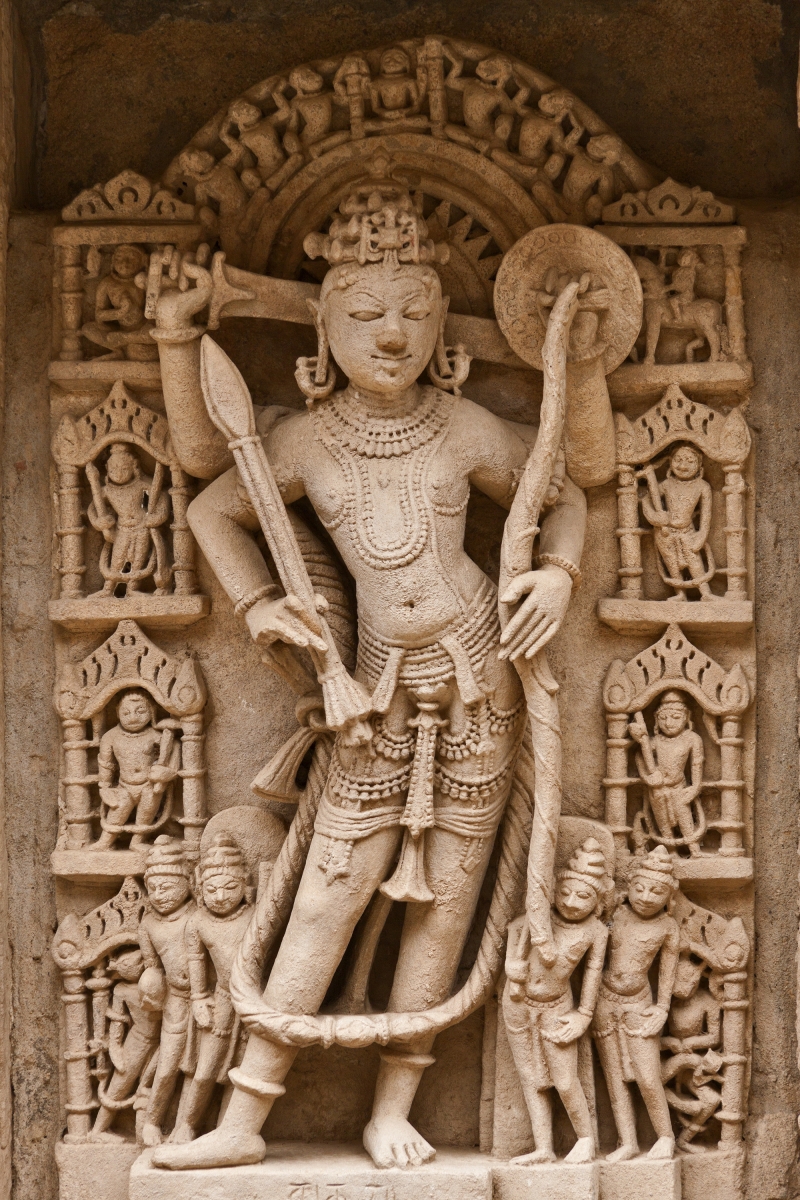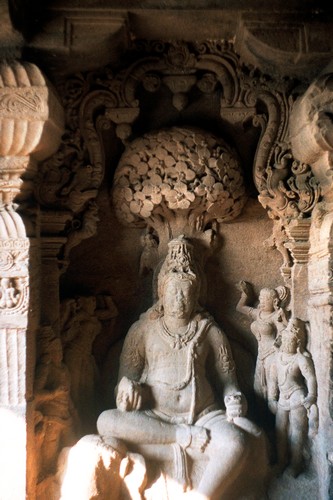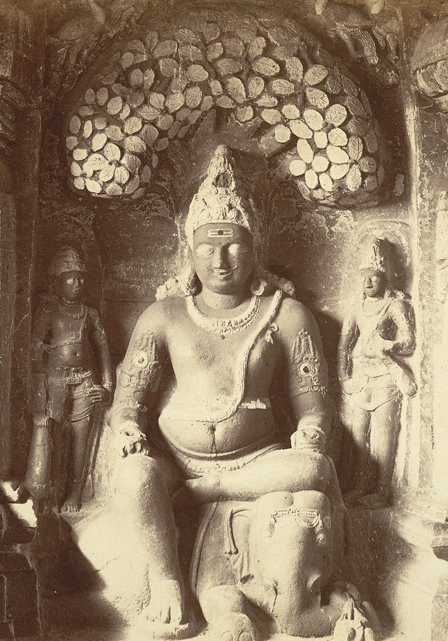Ancient Psychedelia: Alien Gods & Mushroom Goddesses
Online Book - Chapter 5, Page 63
Back to Online Book Mainpage / Next Page (Chapter 5, Page 64)
 (18g) Ram Avarata. Rani ki vav Temple, Gujarat, India c. 1000-1100 AD What I have done in the following pages is I have gone through the entire Rig Veda and extracted all passages that I felt applied to the subject of the mushroom, directly. Then I eliminated all but the best ones and lumped together all of the “keywords” that were used, so as to create a better picture of each deity. In addition, I emphasized the important areas of the passages. This should help dramatically in seeing the characteristics each one has that are similar and mushroom-based. Indra’s weapon of choice was the “vajra” or thunderbolt and the rainbow is called “Indra’s bow” (Indradhanush), which is likely where we get the ideas of arrows from angels from heaven, the archer Apollo, and Artemis and all the other archer deities such as Anat, and even Eros or Cupid, down to Robin Hood, whose name implies red hat. This further connects the idea of the lightning and thunder engendering the mushrooms which are shown like arrows raining down from heaven. (30) Indra is often portrayed with thunderbolt in one hand and a bolt of some kind (mushroom) in the other or a mushroom over his head as depicted in Jain steles from the caves at Ellora, c. 100-1200 AD (19a, b, c). |
  R: (19c) Indra sculpture in Indrasabha, cave no. 32 Ellora, Maharashtra c. 400-600 AD (19a) Indra c. 100-200 AD In the following hymns from the Rg Veda, we read about the juice of Soma and making of oblations to Indra. Ideas of might in strength and the outpouring of songs which occur when someone consumes the entheogenic mushroom: (1) COME, Indra, and delight thee with the juice at all the Soma feasts, Protector, mighty in thy strength. (2) To Indra pour ye forth the juice, the active gladdening juice to him the gladdening, omnific God. (3) O Lord of all men, fair of cheek, rejoice thee in the gladdening lauds, Present at these drink-offerings. (4) Songs have outpoured themselves to thee, Indra, the strong, the guardian Lord, and raised themselves unsatisfied. (9) Praising with songs the praise-worthy who cometh to our aid, we call Indra, the Treasure-Lord of wealth. (RV1) Hymn IX. Indra. (30) The Healing Gods of Ancient Civilizations, p. 170 |
Go Back to Page 62